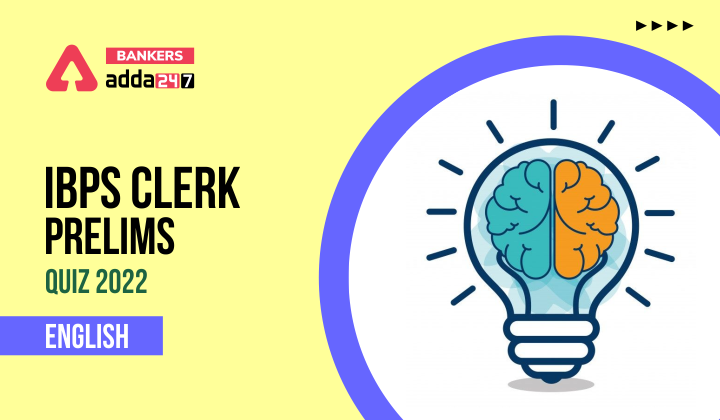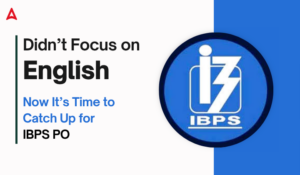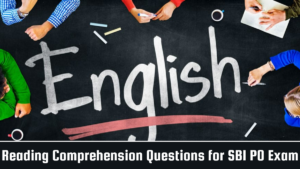Directions (1-8): In the following passage there are blanks, each of which has been numbered. These numbers are printed below the passage and against each, five words are suggested, one of which fits the blank appropriately. Find out the appropriate words.
Karl Heinrich Marx (1818-1883) was the last of the great evaluator (1) in the Western intellectual alleviate (2). His ideas exerted (3) a decisive influence on all aspects of human target (4), and transformed the study of history and society. They significantly changed anthropology, the arts, cultural studies, history, law, literature, philosophy, political economy, political theory and sociology by deteriorating (5) a link between economic and intellectual life.
By developing a theory (6) of praxis, i.e. unity of thought and action, Marx brought about a sea change in the entire scheme (7) of the social sciences. However, from its very inception Marxism had to promote (8) criticism and critical acclaim.
Q1.
(a)heroes
(b)critics
(c) soldiers
(d) searchers
(e)No correction
Q2.
(a)tradition
(b)creed
(c)conventional
(d)believe
(e)No correction
Q3.
(a)throw
(b)craved
(c)strived
(d)executes
(e)No correction.
Q4.
(a)wish
(b)purpose
(c)endeavor
(d)pursuit
(e)No correction
Q5.
(a)installing
(b)designating
(c)encouraging
(d)establishing
(e)No correction
Q6.
(a)basis
(b)conjecture
(c)essence
(d)nexus
(e)No correction
Q7.
(a)processes
(b)methodology
(c)policy
(d)structure
(e)No correction
Q8.
(a)relish
(b)swallow
(c)allow
(d)countenance
(e)No correction
Directions (9-15): Read each of the following sentences to find out whether there is any error in it. The error, if any, will be in one part of the sentence. The alphabet of that part is answer. If there is no error, the answer is ‘e’. (Ignore, the error of punctuation, if any).
Q9. Having worked (a)/ for the whole day (b)/ you could have taken some rest (c)/ and start work tomorrow. (d)/ No error. (e)
(a) A
(b) B
(c) C
(d) D
(e) E
Q10. Scarcely had he (a)/ gone a few steps (b)/ that he was told by someone (c)/ that his mother was no more. (d)/ No error. (e)
(a) A
(b) B
(c) C
(d) D
(e) E
Q11. Seldom or ever (a)/ have I tried my (b)/ best to defend my friends, who are after (c)/ all guilty to some extent. (d)/ No error. (e)
(a) A
(b) B
(c) C
(d) D
(e) E
Q12. Dogs soon know (a)/ the person whom (b)/ they are (c)/ kindly treated. (d)/ No error. (e)
(a) A
(b) B
(c) C
(d) D
(e) E
Q13. If she had told me that (a)/ her husband never lived (b)/ within his means, I would not (c)/ have lent him the money. (d)/No error. (e)
(a) A
(b) B
(c) C
(d) D
(e) E
Q14. I could not recall (a)/what she has told (b)/me about her (c)/concern with Moti. (d)/No error. (e)
(a) A
(b) B
(c) C
(d) D
(e) E
Q15. There were only two (a)/ soldiers but each and every (b)/ soldier was equal (c)/ to five policemen. (d)/ No error. (e)
(a) A
(b) B
(c) C
(d) D
(e) E
Solutions
S1. Ans.(b)
S2. Ans.(a)
S3. Ans.(e)
S4. Ans.(c)
S5. Ans.(d)
S6. Ans.(e)
S7. Ans.(b)
S8. Ans.(d)
S9. Ans. (d)
Sol. Replace ‘start’ by ‘started’ as part (c) of the sentence uses ‘could have’. “Have/has/had” is followed by V3 form of the verbs. Hence “could have taken …… and started…” is the correct usage.
S10. Ans. (c)
Sol. Use ‘when’ in place of ‘that’ as “Scarcely/Hardly” is followed by ‘when’ or ‘before’ in a correct grammatical usage.
S11. Ans. (a)
Sol. Replace ‘or’ by ‘if’ as “seldom if ever” and ‘seldom or never’ are the correct usage.
S12. Ans. (b)
Sol. Use ‘by’ before ‘whom’ to make the sentence grammatically correct. Look at these sentences;
I know the man by whom he was helped. [Passive]
I know the man who helped him. [Active]
S13. Ans. (e)
Sol. The given sentence is grammatically correct.
S14. Ans. (b)
Sol. Replace ‘has’ by ‘had’ as part (a) of the sentence denotes the past event while part (b) signifies past of the past event for which Past Perfect Tense should be used.
e.g. I did not know [Simple Past] when he had come [Past Perfect Tense].
S15. Ans. (b)
Sol. Replace ‘each and every’ by ‘each’ as ‘each’ is used for ‘two or more than two’ while ‘every’ or ‘each and every’ is always used for ‘more than two’.
e.g. There were two boys and each boy had a red pen.
There were ten students in the class room and each/every/each and every student had a red pen.





 Didn’t Focus on English? Now It’s Time t...
Didn’t Focus on English? Now It’s Time t...
 Reading Comprehension Questions for SBI ...
Reading Comprehension Questions for SBI ...
 Fillers Questions for SBI PO Mains Exam ...
Fillers Questions for SBI PO Mains Exam ...


